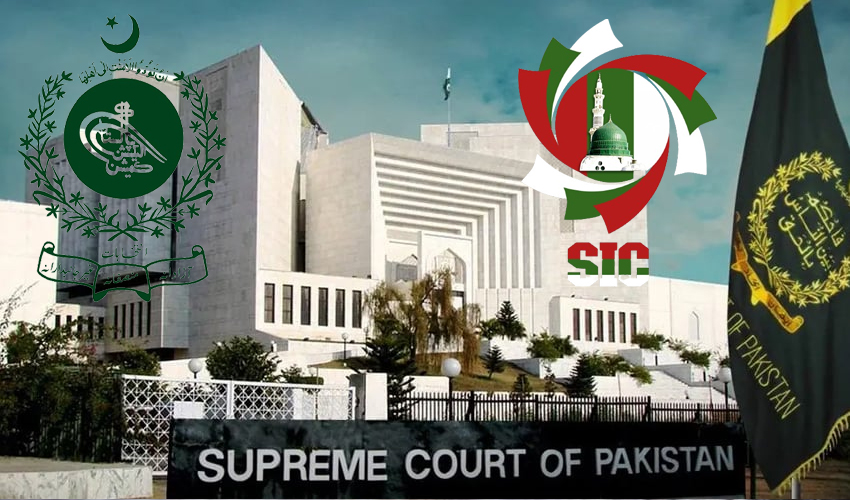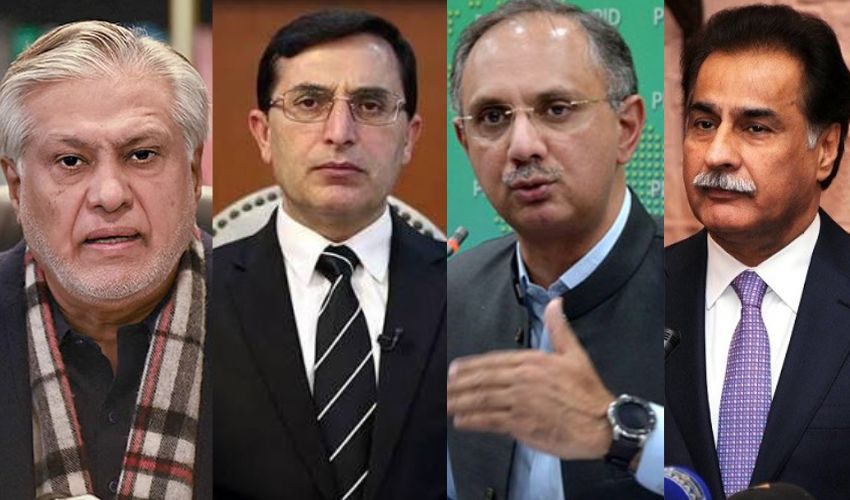The Supreme Court of Pakistan (SCP) has released a 70-page judgment regarding the reserved seats case of the Sunni Ittehad Council (SIC).
SC Justice Mansoor Ali Shah wrote a 70-page verdict.
The detailed verdict stated that the stakes in the election fundamentally lie with the people, highlighting the unique nature of election disputes compared to other civil matters.
Read more: SC verdict on reserved seats terms as clear ‘violation’ of Constitution
The judgment aims to clarify legal principles and procedures involved in electoral issues, reinforcing the importance of a fair and transparent electoral process.
SC points out ‘absence of civility’ in dissenting notes of Justice Aminuddin and Justice Naeem
Supreme Court's detailed verdict on the reserved seats case highlighted the disagreements among the bench members as the ruling particularly addressed the dissenting notes of Justice Aminuddin Khan and Justice Naeem Akhtar Afghan, stating that their disagreement with the majority judgment was inappropriate given their position.
According to the judgment, it is not necessary for judges to always have complete alignment, but the manner of dissent should reflect their judicial role.
It is important to note that two judges disagreed with the majority decision, while the remaining three, including the Chief Justice, concurred on using the powers of complete justice to a certain extent.
Read more: ECP fails to perform its duties in February 2024: SC
The detailed judgment expressed regret that, despite several discussions, the bench could not agree on the ultimate relief for absolute justice.
The Supreme Court emphasized that the majority of the 11 judges believed that Pakistan Tehreek-e-Insaf (PTI) candidates and voters were deprived of their fundamental rights by the illegal actions of Returning Officers (ROs) and the Election Commission.
The principle of proportional representation on specific seats was also compromised. However, three judges, including the Chief Justice, disagreed on the matter of restoring the rights to the rightful candidates.
In their dissenting note, Justice Aminuddin Khan and Justice Naeem Akhtar Afghan labeled the majority decision of July 12 as unconstitutional. The majority judgment, while respecting their opinion, disagreed with the style of their dissent.
The Supreme Court also stressed that judges must offer comprehensive judgments, considering both their views and those of their dissenting colleagues in a respectful manner. Disagreement should not lead to ego clashes or a loss of civility, the judgment emphasized.
Returning officers, ECP prejudice towards PTI
As per the judgment: "The Commission has failed to perform its role as a “guarantor institution” of democratic processes 113. We find it important to emphasize that the Commission, as a constitutional “electoral management body”, is not merely an administrative entity but a fundamental “guarantor institution” of democratic processes, with a constitutional status akin to a “fourth branch of government”.
"The Commission must therefore fully recognize its constitutional position and the critical role it plays in a democracy while performing its duty to conduct free and fair elections. As a central pillar of democratic electoral processes, the Commission, in its role as a guarantor institution and impartial steward, is tasked with ensuring the transparency and fairness of elections to maintain public trust in the electoral system.
"This is essential for the legitimacy of elected representatives and the stability of the political system. The Commission must uphold democratic principles and the integrity of electoral processes by ensuring that elections truly reflect the will of the people, thereby preserving the democratic fabric of the nation. Unfortunately, the circumstances of the present case indicate that the Commission has failed to fulfill this role in the General Elections of 2024."
‘Democracy without political parties unlikely to sustain itself for long’
As per the judgement of the SC, “Political parties play a crucial role in representative democracies, acting as intermediaries between the state and its citizens. They are uniquely positioned to shape and structure electoral choices, organize public opinion, and integrate diverse interests into coherent platforms, thereby making electoral decisions meaningful and ensuring the proper functioning of democracy.”
“Moreover, political parties contribute to stable governance by facilitating consistent lawmaking and ensuring regular accountability. As such, they are essential to electoral competition and are key to the legitimacy, efficiency, and accountability of state institutions.
“This central role of political parties in the constitutional process is referred to as “constitutional particracy”, meaning a system in which political parties serve as the primary foundation of governance. For democracy to endure, political parties must be supported and strengthened, not eliminated. A democracy without political parties is unlikely to sustain itself for long,” the SC detailed verdict stated.



























